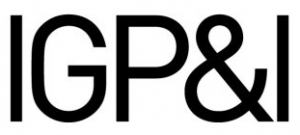
In September 2020, the state legislature in California enacted a statutory amendment to its marine oil pollution law (AB 3214), which greatly enhanced the monetary penalties that can be imposed after such incidents. The law came into effect in January 2021.
Published 24 February 2021
The civil fine penalty range was altered from USD 5,000 minimum to USD 500,000 maximum, to a doubling of amount, namely USD 10,000 minimum to USD 1 million maximum. Additionally, and more significantly, there was a change to the second tier of fines that could be imposed if criminal charges are brought in such a case, to an amount up to USD 1,000 per US gallon, involving a spill quantity greater than 1,000 US gallons. These increases warranted attention by the marine shipping community, which attempted to ameliorate this legislative initiative. See Gard’s Member Circular 10/2020.
Could it have been worse?
Gard’s circular 10/2020 issued on 13th October 2020, gave the background to the International Group of P&I Club’s (IG) efforts to lobby against this legislation, which was first brought to the IG’s attention in May 2020, during the COVID-19 lockdown. The IG’s initial round of lobbying successfully kept a provision that would have changed the special California state Certificate of Financial Responsibility (COFR) out of the final version of the legislation, maintaining the current COFR limit at USD 1 billion, against a proposed increase to USD 2 billion. In addition, there was successful lobbying to change the increase of the criminal fine level, that had been proposed to go to USD 10,000 per US gallon. A gallon is about 3.8 liters, so even at USD 1,000 per gallon, the new legislation still has the potential to result in fines exceeding the USD 1 billion limit of the IG’s oil pollution cover. The IG Clubs advised their Members that the USD 1 billion limitation on cover for pollution, including fines, remains in effect. See Gard’s Member circular 13/2020. The IG continues to actively look for solutions.
Are there any limiting factors present in the new fine regime?
There are several factors limiting exposure for fines in excess of the USD 1 billion P&I cover, four of which are outlined below.
First of all, the most common sort of fine to arise from a marine oil pollution incident is a civil penalty, and as outlined above, while significantly increased by 100 per cent in the new legislation, they are at maximum USD 1 million, which while certainly a high amount, is a quantum well within the Club’s USD 1 billion coverage for such events. Also, it should not be forgotten that this is a broad penalty range, and its application, if true to past practice, would be that fines for smaller spills, the most commonly occurring event, would be more likely to be at the bottom of the range, USD 10,000 or somewhat above.
Secondly, criminal enforcement actions are usually not instituted for the most common oil spill cases and so the draconian fines in criminal actions available to California authorities would not emerge in most cases. That said and as discussed below, the culpability ‘trigger’ for such criminal prosecutions is lower than in other areas of criminal law.
Third, the high, punitive exposure for such criminal fines against vessel interests does not come into play unless the quantity spilled is greater than 1,000 US gallons, so the risk of exceeding the P&I cover limit is therefore much more relevant for tankers, rather than for vessels with oil aboard as fuel only, which would be in more limited quantities. As an example, if a spill incident involves 500 m/t over the 1,000 US gallon level, this would be a spillage of 374,025 gallons, which could engender a maximum criminal fine of USD 374,025,000, which is a huge amount but within the ceiling of USD 1 billion P&I pollution cover.
Fourth, the additional high fine that could be imposed in a criminal case for quantities greater than 1,000 US gallons is not mandatory for a judge to impose, but is a discretionary decision, and so likely only those cases of more egregious conduct or widespread environmental impact would cause a presiding judge to use this special, additional high penalty range.
What about the lower culpability level needed for triggering the potential criminal prosecution – how might that work?
The new provisions in California are said to target deliberate or knowing criminal actions and willful or grossly negligent actions, standards that have been seen before in other legal regimes in the world. But in this new California statute, the wording of applies to a party “who should have reasonably known” that a discharge or pollution event would occur. This wording does raise some uncertainty as to where this degree of simple negligence kicks in, and whether it will be assessed on an individual crew member basis, or on a ship management level.
There is prior US case law, including water pollution events, that environmental crimes are ‘public welfare crimes’, which do not need any intent element at all, again meaning that simple negligence could be subsumed within a criminal liability. Would this public welfare crime concept be utilized by a California state judge? It is difficult to predict how the new regulations will play out in practice, before there are some cases under the new law and seeing how the California authorities and courts will deal with such matters. However, criminal prosecutors in practice generally wish to reserve the maximum penalties for the most egregious actors/facts, to allow for settlement of lesser cases and to maintain the maximum fine level as a factor in plea bargain agreements, under which a large majority of criminal cases are ultimately resolved.
Pollution fines are covered by IG Clubs’ Rules when arising from accidental discharges of pollutants from the ship and there is no express exclusion in the Clubs’ Rules for criminal versus civil fines. Fines, whether civil or criminal, arising from intentional discharges are not covered. Where a particular case under the California regime may fall between an accidental or intentional spill will depend on the specific facts of that case.
What can be done by a vessel operator to deal with marine oil pollution cases in California when they occur, to try to avoid the imposition of high civil and criminal penalties?
Each shipowner should assess the risk of trading to California and exercise utmost caution to avoid operational spills. If pollution occurs, such a spill must be reported timely, and the responsible party’s failure to comply with orders given and measures required may also lead to fines. Unless known with absolute certainty, the vessel personnel should be initially very cautious in making any specific quantity representations, or even estimations, since the civil and criminal penalties are geared to quantity levels. When dealing with California officials in a post-spill investigation, before getting into the specifics about why an incident may have happened, and particularly what errors or mistakes might have occurred resulting in the pollution, the Master should immediately contact the local P&I correspondent for advice. All US correspondent offices are law firms and local legal advice in California will be of paramount importance in pollution cases. Correspondents can also provide important information about legal rights of crew subject to questioning and also assist in obtaining individual legal representation for key crew witnesses.
Related Articles






